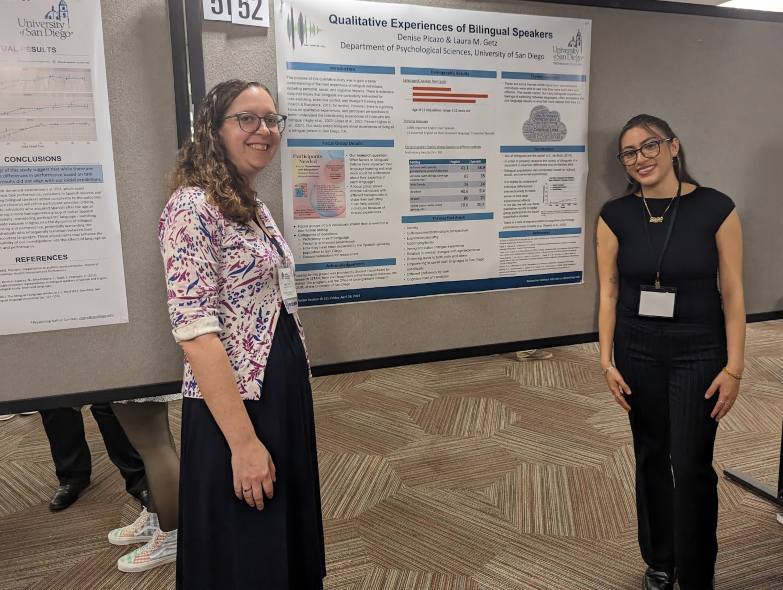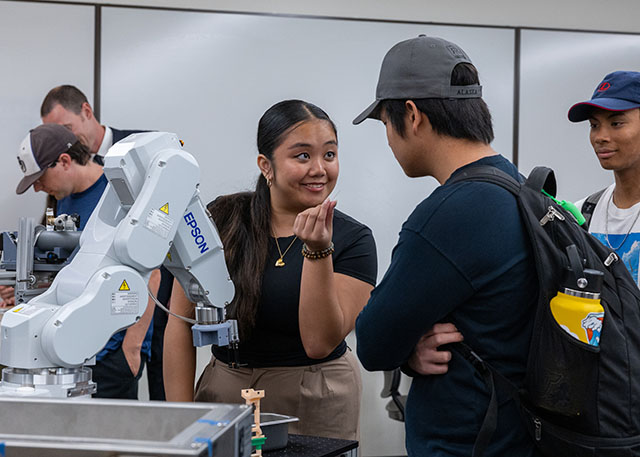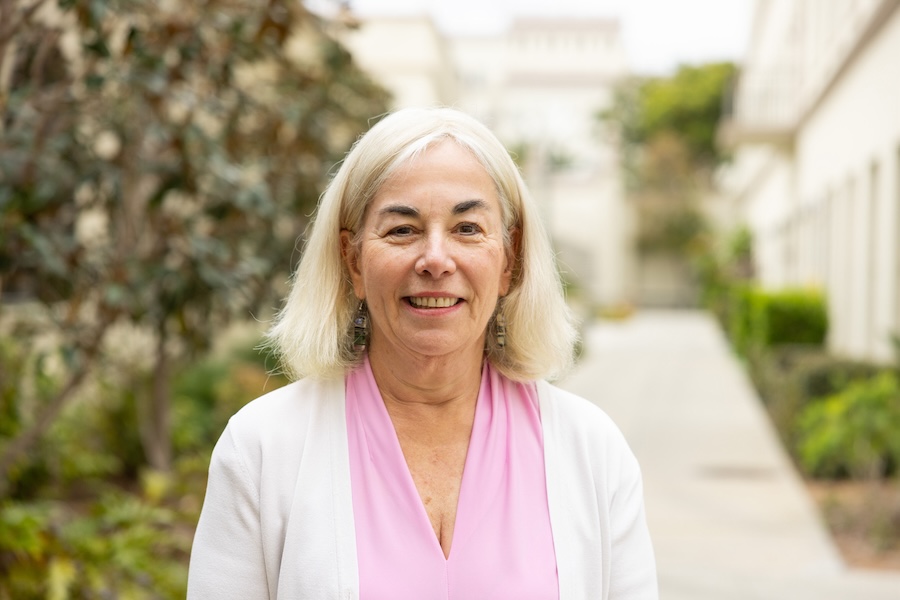STAR Award Recipient Denise Picazo Presents Research at WPA Convention
 Denise Picazo and Laura Getz, PhD, with Picazo's poster
Denise Picazo and Laura Getz, PhD, with Picazo's poster Denise Picazo is a senior majoring in psychology and Spanish. With funding support from the Psychological Sciences' Student Travel Award for Research (STAR) and the Office of Undergraduate Research, Picazo was able to present her research, "A Qualitative Analysis of Bilinguals’ Personal, Social, and Cognitive Experiences." At the Western Psychological Association (WPA) Convention in San Francisco, CA. Attending WPA was memorable and exciting to Picazo,"I was able to network and build real relationships with more women of color in psychology."
Read Picazo's abstract below:
The purpose of this qualitative study was to gain a better understanding of the lived experience of bilingual individuals, including personal, social and cognitive impacts. There is extensive data that shows that bilinguals are particularly well-suited for task-switching, executive control and divergent thinking (Kharkhurin, 2007; Poarch & Bialystock, 2015). However, there is a growing focus on qualitative experiences, and participant perspectives to better understand the individuating experiences of those who are bilingual (Higby et al., 2023; Lopez et al., 2023; Peace-Hughes et al., 2021). Our study asked bilinguals about experiences of living as a bilingual person in San Diego, CA. We held several focus groups that included either English/Spanish bilinguals or participants who were bilingual in English and a second language other than Spanish. Themes such as culture, connection, identity and proficiency guided the discussions. The results indicate that factors such as age of acquisition and an individual's background are often determinants of how much each language is maintained. These focus group findings will inform future quantitative studies in our lab, providing a more holistic answer on how participants' perceive their L1 and L2. Results will help to better separate participants rather than just comparing all bilinguals to all monolinguals.
Contact:
Psychological Sciences Department
Psychology@sandiego.edu
619-260-4511



